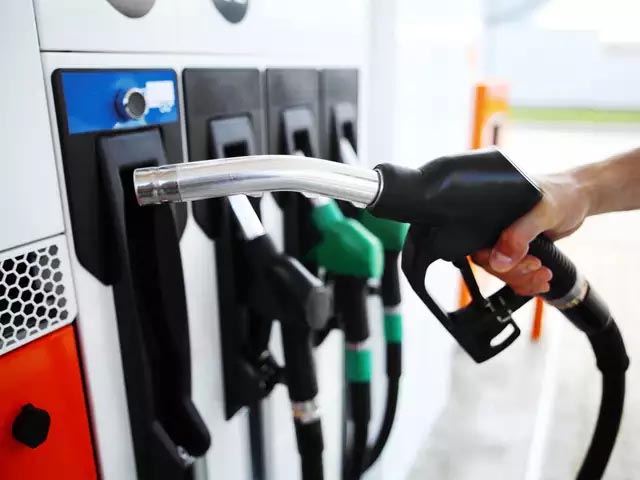
While the world economy is taking a hit due to the Corona virus, India’s economy is suffering even more due to miscalculated steps taken by the Modi regime. This is most evident in how the government has failed to pass on the benefit of plunging oil prices to consumers.
Oil prices have seen the sharpest drop since the Gulf War of 1991 when the prices had declined over 31 percent. For a monthly average of nearly $66 per barrel in December 2019, the prices of crude oil were down at $34.70 as on March 11, 2020. Now, given how we get almost 85 percent of our crude oil by importing it, the drop in oil prices should have brought good news. But the Modi government has successively raised excise duties to collect more taxes.
Petroleum is outside the ambit of the Goods and Services Tax (GST). During the period of November 2014 to January 2016, the period of declining oil prices, the excise duty had been raised nine times through which the government lapped up over 10 lakh crore. Different states that levy Value Added Tax (VAT), anywhere from 6 percent to 39 percent, earned a revenue of 3.1 lakh crore during that period.
Though the government has given out miniscule price cuts of 12 paise a liter on petrol and 14 paise a liter on diesel, last week, on Saturday, the Central Board of Indirect Taxes and Customes raised special excise duties on petrol by Rs 2 to Rs 8 per litre and to Rs 4 a litre from Rs 2 in case of diesel. Additionally, road cess was raised by Re 1 per litre each on petrol and diesel to Rs 10. This is now taken up the total excise duty on petrol to Rs. 22.98 per liter and that on diesel to Rs. 18.83 per liter. This in addition to the state and other local taxes that consumers are required to pay for fuel. The move is set to fetch the government an estimated Rs. 39,000 crore in additional revenue.
Comparing to the last time the oil prices were this benign when crude oil prices hovered at around $35.68 per barrel, the retail price of petrol was at Rs. 59.98, nearly 15 percent lower than today’s rates and the price of diesel was Rs. 46.09 per litre, almost 27 percent lower than today, reported Business Today.
While the calls of lowering retail prices amid an almost 50 percent reduction in crude oil prices, they are falling on deaf ears. Against the global reduction in prices, the prices of petrol and diesel have only gone down by 7 percent and 8 percent this year respectively. Though oil manufacturing companies have reduced the oil prices by a bit to offset the excise duty hike, they are still lower than the decline in crude oil rates.
However, apart from a hike in taxes, foreign exchange rates too are playing havoc with the prices. In December 2015 while one was required to pay Rs. 64.8 per dollar, today the number stands at Rs.73.81, a 14 percent increase. This translates to India paying more for a dollar in payments for oil barrels, thus cutting the benefit of lower crude oil prices.
This doesn’t mean prices haven’t come down at all. Diesel is now available at a 13-month low and petrol has been at its cheapest since July 2019, but prices are still steep and lower taxes can benefit not only end consumers, but also the economy as a whole.
Finance Minister Nirmala Sitharaman’s silence on whether the price cuts will benefit consumers too confirms the strategy of the government.
Look how Finance Minister Nirmala Sitharaman reacted to an important question by @TweshMishra on benefits to consumers by lowering the excise duty as the crude prices had reduced. pic.twitter.com/aJlbFyS5eU
— Mohammed Zubair (@zoo_bear) March 14, 2020
Therefore, with central and state governments hiking up their taxes, along with a hike in dealer commissions, the petrol and diesel rates haven’t seen any real reduction. Besides, the government which is taking a hit from the collection of property taxes due to the slump in the real estate sector, is probably looking to fill up its coffers by imposing high taxes on fuel.
Speaking to reporters, DK Aggarwal, President PHD Chamber of Commerce and Industry said, “At this juncture, we suggest a reduction in excise duties and VAT on petroleum, diesel and allied products by at least 25 percent, to bring down the prices of petroleum products, which will be a big relief to the industry, will boost and kick start economic growth, while reviving the spirit in the economy. This reduction in excise and VAT would reduce the prices of petrol and diesel by Rs 9-10 per litre and help lower inflation, boost consumer spending, make Indian industry competitive and boost overall revenue benefiting the government, industry and economy.”
Political parties too are slamming the Modi government over the excise duty hike. CPI (M) Kerala State Secretary Kodiyeri Balakrishnan demanding an immediate withdrawal of the hike, told reporters, “The decision to raise the price comes at a time when people were worried about COVID-19 is a gross injustice to the people.”
However, the most significant criticism came from Congress leader Rahul Gandhi who tweeted the following.
Just 3 days ago I had requested @PMOIndia to pass on the benefit of the global oil price crash to Indian consumers, by slashing the prices of petrol & diesel in India. Instead of heeding this advice, our genius has gone and hiked #exciseduty on fuel! pic.twitter.com/lGEQosS9JE
— Rahul Gandhi (@RahulGandhi) March 15, 2020
Related:
Inflation and Oil: What ails India’s economy?
Why is Modi govt increasing domestic prices when international crude oil prices have fallen sharply?